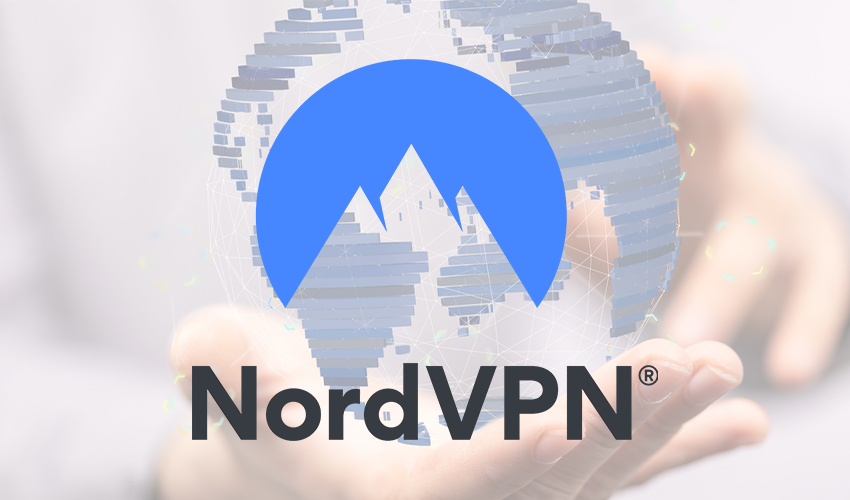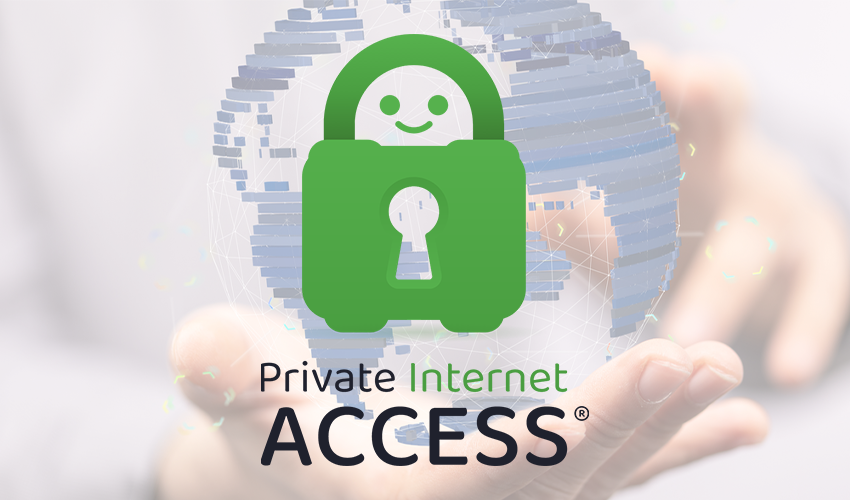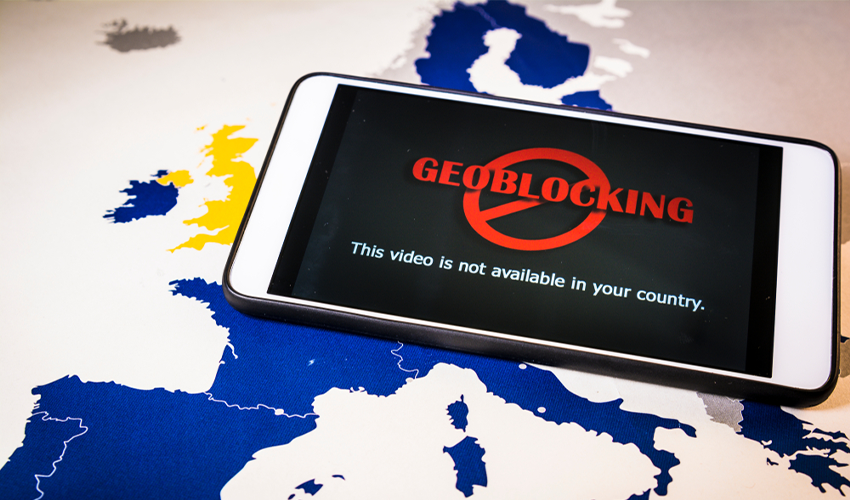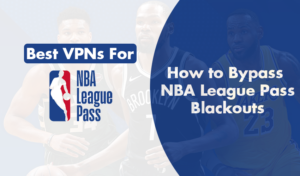As someone who has experienced the frustration of being blocked from accessing certain websites or content due to geographic restrictions, I understand how important it is to find ways to get around geo-blocking. In this article, I will provide you with tips and tricks on how to bypass these restrictions legally and safely.
How to Get Around Geo Blocking Using a VPN
One of the most effective ways to get around geo-blocking is by using a Virtual Private Network (VPN). A VPN is a secure and encrypted connection that allows you to connect to the internet through a server located in a different country. By doing so, you can mask your IP address and appear as if you are accessing the internet from a different location.
To use a VPN to get around geo-blocking, follow these steps:
- Choose a reputable VPN provider that has servers in the country you want to access blocked websites from.
- Download and install the VPN software on your device.
- Connect to a VPN server located in the desired country.
- Access the restricted content or website.
While VPNs are an effective way to bypass geo-blocking, it is important to use a reputable provider that has a strict no-logging policy and does not leak your personal information. Some of the best VPNs for getting around geo-blocking include NordVPN, Surfshark, and Atlas VPN.
Introduction to Geo-Blocking
Geo-blocking, also known as geo-restrictions or regional restrictions, refers to the practice of limiting access to online content based on the user’s geographical location. This is often done by websites, online services, and streaming platforms to comply with copyright laws, licensing agreements, and regional regulations.
For instance, if you are in the United States, you may not be able to access certain content or services that are exclusive to users in the United Kingdom. Similarly, if you are in China, you may not be able to access social media platforms such as Twitter, Facebook, and Instagram due to government censorship.
Why Do Websites Use Geo-Blocking?
Have you ever tried to access a website or service only to be met with a message saying that it’s not available in your location? That’s because of geo-blocking. Websites use this technique to restrict access to their content or services based on the user’s location. But why do they do this?
One reason is to comply with local laws and regulations. For example, some countries have strict censorship laws that prohibit certain types of content from being accessed within their borders. By geo-blocking their content, websites can ensure that they’re not breaking any laws or risking getting blocked entirely in that region.
Another reason is to protect their content or services from copyright infringement. By geo-blocking their content, websites can prevent users from accessing it in regions where they don’t have the legal rights to distribute it. This helps them avoid costly lawsuits and maintain control over their intellectual property.
Lastly, websites may use geo-blocking as a way to control their pricing and distribution. For example, if a streaming service offers different pricing plans for different regions, they may want to prevent users from accessing the cheaper plans in regions where they’re not intended to be available. This helps them maintain a fair pricing structure and prevent users from taking advantage of loopholes. A clear example of this would be NBA League Pass pricing which differs from country to country.
In summary, websites use geo-blocking for a variety of reasons, including legal compliance, copyright protection, and pricing control. While it may be frustrating for users who encounter geo-blocked content or services, it’s ultimately a necessary measure for websites to protect themselves and their content.
The Impact of Geo-Blocking on Users
Geo-blocking is a practice that has become increasingly common in recent years, and it refers to the practice of restricting access to certain websites or online content based on the geographic location of the user. This can have a significant impact on users, as it can limit their access to information, entertainment, and other digital resources that they may be interested in. For example, geo-blocked sites may include popular streaming services that are only available in certain countries or news websites that are restricted based on political or cultural factors.
The impact of geo-blocking on users can be significant, as it can limit their ability to access content that they may be interested in or need for work or personal reasons. This can be frustrating and can lead to feelings of exclusion or unfairness. Additionally, geo-blocking can also have a negative impact on businesses and other organizations that rely on online content to reach customers or promote their products and services.
However, there are also ways to circumvent geo-blocking, such as using a virtual private network (VPN) to access restricted content. This can help users access the content they need without being limited by their geographic location. While there are some risks associated with using a VPN, such as the potential for slower internet speeds or security concerns, many users find that it is a valuable tool for accessing online content that would otherwise be unavailable to them.
Overall, the impact of geo-blocking on users can be significant, but there are also ways to work around these restrictions and access the content that users need and want. As digital technology continues to evolve, it will be interesting to see how these issues are addressed and how users and businesses adapt to the changing digital landscape.
Criteria for Choosing the Best VPN for Bypassing Geo-Blocks
If you’re looking to bypass geo-blocking and unblock content that is restricted in your region, a Virtual Private Network (VPN) can be an effective solution. However, not all VPNs are created equal when it comes to bypassing geo-blocking. So, how do you choose the best VPN for this purpose?
First and foremost, you need to consider the VPN’s server network. The more servers a VPN has, the better your chances of finding a server in a location that can bypass geo-blocking. Look for a VPN with servers in the countries where the content you want to access is located.
Another important factor to consider is the VPN’s speed. You want a VPN that can provide fast and reliable connections. Look for a VPN with high-speed servers and minimal latency.
Security is also crucial when choosing a VPN. You want a VPN that uses strong encryption protocols and has a no-logging policy. This ensures that your online activity is secure and private.
Ease of use is another important criterion. You want a VPN that is easy to set up and use, even for beginners. Look for a VPN with a user-friendly interface and clear instructions.
Finally, consider the cost of the VPN. While free VPNs are available, they often come with limitations and may not be effective for bypassing geo-blocks. Paid VPNs can be expensive, but they generally offer better performance and more advanced features.
In conclusion, when it comes to bypassing geo-blocks, choosing the right VPN is crucial. Look for a VPN with a wide server network, fast speeds, strong security, ease of use, and reasonable cost.
Best VPNs for Getting Around Geo-Blocking
If you decide to use a VPN to get around geo-blocking, here are some of the best VPNs to consider:
NordVPN – Bypass Geo Blocks From Anywhere

NordVPN is undoubtedly one of the most popular VPNs available in the market today, and for good reason. It offers a host of impressive features that make it the best VPN for bypassing geo-blocks. With NordVPN, you can access any website or online content, no matter where you are in the world. This is made possible through its robust network of servers spread across more than 50 countries.
One of the most notable features of NordVPN is its SmartPlay technology, which combines the benefits of VPN and Smart DNS to deliver a seamless streaming experience. With SmartPlay, NordVPN can bypass even the most stubborn geo-restrictions and provide access to popular streaming services like Netflix, Hulu, and Amazon Prime Video. This means that you can enjoy your favorite shows and movies from anywhere in the world, without any buffering or lagging.
Another impressive feature of NordVPN is its double VPN encryption. This means that your internet traffic is encrypted twice, making it virtually impossible for anyone to track or intercept your online activities. This is particularly useful when you’re trying to bypass geo restrictions as it ensures that your online identity remains anonymous and secure.
Furthermore, NordVPN also offers a built-in ad blocker and malware protection, which keeps your device safe from online threats and annoying pop-ups. This is an added bonus for users looking to bypass geo restrictions as it ensures that their online experience is not interrupted by unwanted ads or malware.
Overall, NordVPN’s combination of SmartPlay, double VPN encryption, and built-in ad blocker and malware protection make it the best VPN for bypassing geo-restrictions. Whether you’re traveling abroad or simply trying to access content that’s not available in your country, NordVPN has got you covered.
Surfshark – Unblock Restricted Content In Any Country

Are you tired of being restricted from accessing certain websites and streaming services due to geographic limitations? Look no further than Surfshark VPN. This top-rated VPN offers a plethora of features that make it the perfect solution for accessing geo-blocked services.
One of the key features that sets Surfshark apart from other VPNs is its unlimited simultaneous connections. This means that you can use one account to protect every device in your household, allowing you to access geo-blocked content on multiple devices at once.
Surfshark also boasts a strict no-logs policy, meaning that your online activity and data will never be recorded. This not only offers peace of mind, but it also means that you can access geo-blocked services without fear of being tracked or monitored.
In addition to its privacy and security features, Surfshark also offers a wide range of server locations. With over 1,700 servers in more than 60 countries, you can easily connect to a server in a location where your desired geo-blocked service is available.
Finally, Surfshark offers lightning-fast speeds, making it the perfect solution for streaming geo-blocked content without any lag or buffering. With all of these features and more, Surfshark is one of the top choices for anyone looking to access geo-blocked services with ease and security.
CyberGhost – Never Encounter Geo Blocking Again

When it comes to bypassing geo-blocks, CyberGhost VPN is one of the best options out there. Not only does it allow you to access geo-restricted web content from anywhere in the world, but it also encrypts your data to keep it safe from prying eyes. With CyberGhost, you can enjoy all your favorite content without worrying about hackers or government agencies spying on you.
One of the top features that make CyberGhost a good VPN for bypassing geo-blocking is its extensive network of servers. With over 7,000 servers in 91 countries, CyberGhost can help you get around even the toughest geo-restrictions. Whether you’re trying to access Netflix, Hulu, or BBC iPlayer, CyberGhost has a server that can help.
Another great feature of CyberGhost is its strong encryption protocols. CyberGhost uses AES-256 encryption, which is virtually unbreakable. This means that your data will be safe from anyone who tries to intercept it, whether it’s a hacker or a government agency. And with CyberGhost’s strict no-logging policy, you can be sure that your online activity is completely private.
In addition to its strong encryption and extensive server network, CyberGhost also offers some great additional features. One of these is its ad and tracker blocker, which helps to keep you safe from online advertising and tracking. CyberGhost also offers a kill switch, which will automatically disconnect you from the internet if your VPN connection drops, ensuring that your data stays safe.
Overall, if you’re looking for a VPN that can help you bypass geo-blocking and keep your data safe, CyberGhost is an excellent choice. With its extensive server network, strong encryption, and additional features, CyberGhost is one of the best VPNs on the market today.
Private Internet Access – View Any Geo Restricted Content Easily

Are you tired of being restricted from accessing certain websites or content due to geo-blocking? Look no further than Private Internet Access (PIA), one of the top VPNs for bypassing these restrictions. PIA offers a multitude of features that make it the perfect solution for those seeking to bypass geo-blocks.
First and foremost, PIA boasts an impressive network of servers located in over 74 countries. This means that no matter where you are in the world, PIA has a server nearby that will allow you to bypass geo-blocking and access the content you desire. Additionally, PIA offers unlimited bandwidth and fast connection speeds, ensuring that you can stream and download without any lag or buffering.
Security is also a top priority for PIA. With features such as AES-256 encryption and a strict no-logging policy, you can rest assured that your online activity is secure and private. PIA also offers a kill switch feature that will automatically disconnect your internet if your VPN connection is lost, ensuring that your IP address remains hidden at all times.
In terms of ease of use, PIA offers a user-friendly interface and allows for up to 10 simultaneous connections on one account. This means that you can protect multiple devices with just one subscription.
Overall, Private Internet Access is the ideal VPN for those seeking to bypass geo-blocking and access content from around the world. With its extensive server network, fast speeds, top-notch security features, and user-friendly interface, PIA is the go-to choice for anyone looking to unlock the full potential of the internet.
ExpressVPN – Bypass Geo Blocks And Encrypt Data

Are you tired of being restricted by geo-blocking? Do you want to access content that is not available in your region? Look no further than ExpressVPN! This VPN service is renowned for its ability to bypass geo-blocking and give you access to a world of content that you would otherwise miss out on.
One of the top features of ExpressVPN is its vast network of servers. With over 3,000 servers in 94 countries, this VPN service has a server location for almost every corner of the globe. This means that no matter where you are in the world, you can connect to a server in a different location and bypass geo-blocking with ease.
Another feature that sets ExpressVPN apart is its high-speed connections. When you use this VPN service, you won’t experience any lag or buffering, even when streaming high-quality video content. This makes it perfect for bypassing geo-blocking and accessing content that requires a fast and stable connection.
ExpressVPN also offers top-notch security features, including military-grade encryption and a strict no-logs policy. This ensures that your online activity is kept private and secure, even when bypassing geo-blocking restrictions.
In summary, ExpressVPN is the perfect VPN service for bypassing geo-blocking. Its vast network of servers, high-speed connections, and top-notch security features make it a must-have tool for accessing content from around the world.
How to Get Around Geo Blocking Without a VPN
If you do not want to use a VPN to get around geo-blocking, there are other ways to access restricted content. Here are some methods you can try:
- Use a proxy server: A proxy server is an intermediary server that allows you to access websites through its IP address. However, proxy servers may not be as secure as VPNs and may not work for all websites. Bright Data provides some of the best proxies in the business. In fact, even VPN companies use their proxies.
- Change your DNS settings: DNS (Domain Name System) is like a phone book for the internet that translates domain names into IP addresses. By changing your DNS settings to a server located in a different country, you can access geo-restricted content. You’ll need a Smart DNS service provider. (Most VPNs offer this for free).
Tips and Tricks for Getting Around Geo-Blocking
Here are some tips and tricks that can help you get around geo-blocking:
- Clear your browser cache and cookies: Sometimes, websites may use cookies to track your location and restrict access to content. By clearing your browser cache and cookies, you can reset your location and access the content you want.
- Use incognito mode: Incognito mode or private browsing mode can help you bypass geo-blocking by preventing websites from tracking your browsing history and location.
- Try different servers: If you are using a VPN to unblock content, try connecting to different servers in the same country to find the one that works best for you.
- Use a different browser: Some websites may use browser-specific restrictions to limit access to content. By using a different browser, you may be able to bypass these restrictions.
Common Mistakes to Avoid When Trying to Get Around Geo-Blocking
Here are some common mistakes to avoid when trying to get around geo-blocking:
- Using free VPNs: Free VPNs may seem like a good option, but they often come with limitations such as slow speeds, limited bandwidth, and intrusive ads. Moreover, free VPNs may not be as secure as paid VPNs and may sell your data to third parties.
- Using unverified tools: There are many tools and plugins that claim to help you bypass geo-blocking, but not all of them are safe or effective. Make sure to use verified and trusted tools to avoid malware and security risks.
- Breaking the law: Circumventing geo-blocking may be illegal in some countries and can result in serious consequences such as fines, imprisonment, or account suspension.
What to do if a VPN isn’t able to unblock a specific streaming service?
Are you tired of trying to unblock a specific streaming service with your VPN but it just won’t work? Don’t worry, you’re not alone. Many VPN users face this issue and it can be frustrating. But don’t give up just yet! There are still a few things you can try to get your VPN to unblock that streaming service.
Firstly, make sure that your VPN is actually compatible with the streaming service you’re trying to unblock. Some VPNs work better than others when it comes to unblocking streaming services. Check if your VPN has specific servers designed for streaming, as these may be more effective.
If your VPN is compatible with the streaming service but still not working, try changing the server location. Sometimes, a streaming service may block certain server locations, so switching to a different server may do the trick.
Another option is to try a different VPN altogether. Not all VPNs are created equal, and some may be more effective at unblocking certain streaming services than others. Do your research and find a VPN that has a good track record of unblocking the specific streaming service you’re trying to access.
Lastly, if all else fails, consider contacting your VPN provider’s customer support. They may be able to provide you with a solution or offer advice on how to unblock the streaming service.
Is Bypassing Geo-Blocking illegal?
Bypassing geo-blocking is a common practice among internet users who want to access content that is blocked in their location. But the question that arises is, is it illegal? The answer is not a straightforward yes or no. It depends on the method used to bypass the geo block and the laws of the country where the user is located.
In some countries, bypassing geo-blocking is considered illegal, while in others, it is not. For example, in the United States, there is no law that prohibits bypassing geo-blocking. However, in countries like China and Iran, bypassing geo-blocking is considered illegal, and users can face severe penalties for doing so.
The legality of bypassing geo-blocking also depends on the method used. Using a VPN or proxy server to bypass geo-blocking is legal in most countries. However, using a hacked or stolen account to access content that is blocked in a particular country is illegal.
In conclusion, the legality of bypassing geo-blocking is not black and white. It depends on the laws of the country where the user is located and the method used to bypass the geo block. It is always advisable to check the laws of the country and the terms and conditions of the website or service being accessed before attempting to bypass geo-blocking.
Conclusion
Geo-blocking can be a frustrating and limiting experience for users who want to access restricted services. However, there are legal and safe ways to get around these restrictions, such as using a VPN or changing your DNS settings. By following the tips and tricks outlined in this article, you can bypass geo-blocking and access the content you want without compromising your security or privacy.





